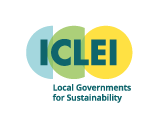ICLEI Whistleblower Mechanism
- Home
- ICLEI Whistleblower Mechanism
-
What is eligible to report?
An eligible report is considered to be any action that is in breech of policy or law concerning how operations are being handled or how projects are is being implemented. In order to be eligible, the report needs to answer the following criteria:
- It needs to be filled by a staff from ICLEI World Secretariat. “Staff” is defined as employees, trainees, interns, but can also include those whose employment has ended.
The reported violation concerns professional activities conducted by ICLEI World Secretariat. It covers all components of operations and activities, including those undertaken by subcontractors and subgrantee on behalf of ICLEI.
At the time of the report, the person providing the information must have had sufficient reason to believe that the information reported or disclosed by him or her was true.
The report from the whistleblower concerns a violation of the law. Examples of legal violations that can be reported through the whistleblower reporting system include:
- ALL violation of criminal law (Art 2.1(1) HinSchG ), serious crimes usually punished by imprisonment under German Law
- Violation punishable by a fine (Art 2.1(2) HinSchG) minor crimes that are punished by penalties or fines, for infringing regulations on Health & the protection of the rights of employees or their representative bodies. E.g. workplace health and safety, violations of the Minimum Wage Act or provisions on fines that sanction violations of the duty to provide information to organs of the workers’ constitution such as staff councils.
- Violation of the following Regulations (Art 2.1(3 et seq.) HinSchG) in any cases
- Money Laundry & Financing Terrorism
- Transport (rail regulations, road safety, maritime transport regulations & aviation safety)
- Environmental Protection Requirements
- Promotion of the use of renewable energy and energy efficiency
- Food safety
- Consumer Rights and Consumer Protection
- Protection of Personal Data for everything as well as Privacy and Confidentiality for electronic communications
- Right of Shareholders
- Audit of companies of public interest
- Tax violation
- Public Procurement rules
- Financial fraud or violation affecting the EU
- EU Competition laws
- Statements made by civil servants that constitute a violation of the duty of loyalty to the constitution.
-
Categories
- Criminal felonies (Art 2.1(1) HinSchG ), serious crimes usually punished by imprisonment
- Health & Protection of the rights of employees or their representative bodies
- Money Laundry & Financing Terrorism
- Transport (rail regulations, road safety, maritime transport regulations & aviation safety)
- Environmental Protection Requirements
- Promotion of the use of renewable energy and energy efficiency
- Food safety
- Consumer Rights and Consumer Protection
- Protection of Personal Data for everything as well as Privacy and Confidentiality for electronic communications
- Right of Shareholders
- Audit of companies of public interest
- Tax violation
- Public Procurement rules
- Financial fraud or violation affecting the EU
- EU Competition laws
- Statements made by civil servants that constitute a violation of the duty of loyalty to the constitution
-
What is not eligible as a report?
Report not dealing with unlawful actions mentioned above.
Please keep in mind that for complains that are not eligible under the Whistleblower Mechanism might still be receivable through other channel.
Indeed, the ICLEI Whistle-blower Mechanism does not replace the other channels available to staff to file reports. The ICM, Works Council, HR, and the Group of Trust from ICLEI WS all still fulfill their roles in receiving and addressing complaints respectively to their areas of expertise. However the Whistleblower Mechanism, eponymously indicates a channel that is specifically for issues not dealt with by the primary channels in the first instance concerning unlawful acts.
-
What is the process?
1. Formal report feedback is submitted and IWM acknowledges receipt within 5 working days. If additional information is required, clarification will be requested. Whistleblowing reports can be submitted in writing or orally by letting a voice message here: +49 1515 0750006. For the best outcomes, the more detailed the relevant information submitted, the better, e.g. copies of documents, corroborating witnesses, media reports, photos/video recordings, dates, attempts to contact project officials locally or use project-based complaint mechanisms.
2. Report is processed, assessing if it’s eligible within the IWM scope (see above) and categorized to be reviewed by the relevant independent panel within 30 working days. The IWM shall maintain contact with the whistleblower, request further information if necessary and take appropriate follow-up action. Follow-up measures are, in particular, internal investigations, but may also include submission to a competent authority.
3. Problem solving procedure and/or mediation takes place, with an in-depth appraisal of the issues and impact. A resolution is proposed or compliance review performed, during the following 20 working days, depending on the complexity of the issue, and is communicated to the affected party.
-
Anonymity
The IWM will keep all whistleblowing reports anonymous and confidential. However, in addition , the Whistleblowing reports can be made anonymously by ticking the corresponding box in the form.
-
Protection of the Whistleblower
Any unjustified professional discrimination or threat thereof in connection with a report made by the Whistleblower under this process is prohibited. This may include but is not limited to terminations, demotions, or refused promotions, as well as changes in job assignments or disciplinary measures. If a Whistleblower claims to have suffered a disadvantage as a result of a report or disclosure it should inform the IWM who will take the appropriate action.
-
Whistleblowing to state agencies
The Whistleblowers have also the right to directly external reporting offices at various federal and state agencies depending on the violation reported (e.g. BarFin for Finance, Bundeskartellamt for Competition, Bundesamt für Justiz for the rest). The German Government and the Länder might, at a later stage, create new external reporting entities.
